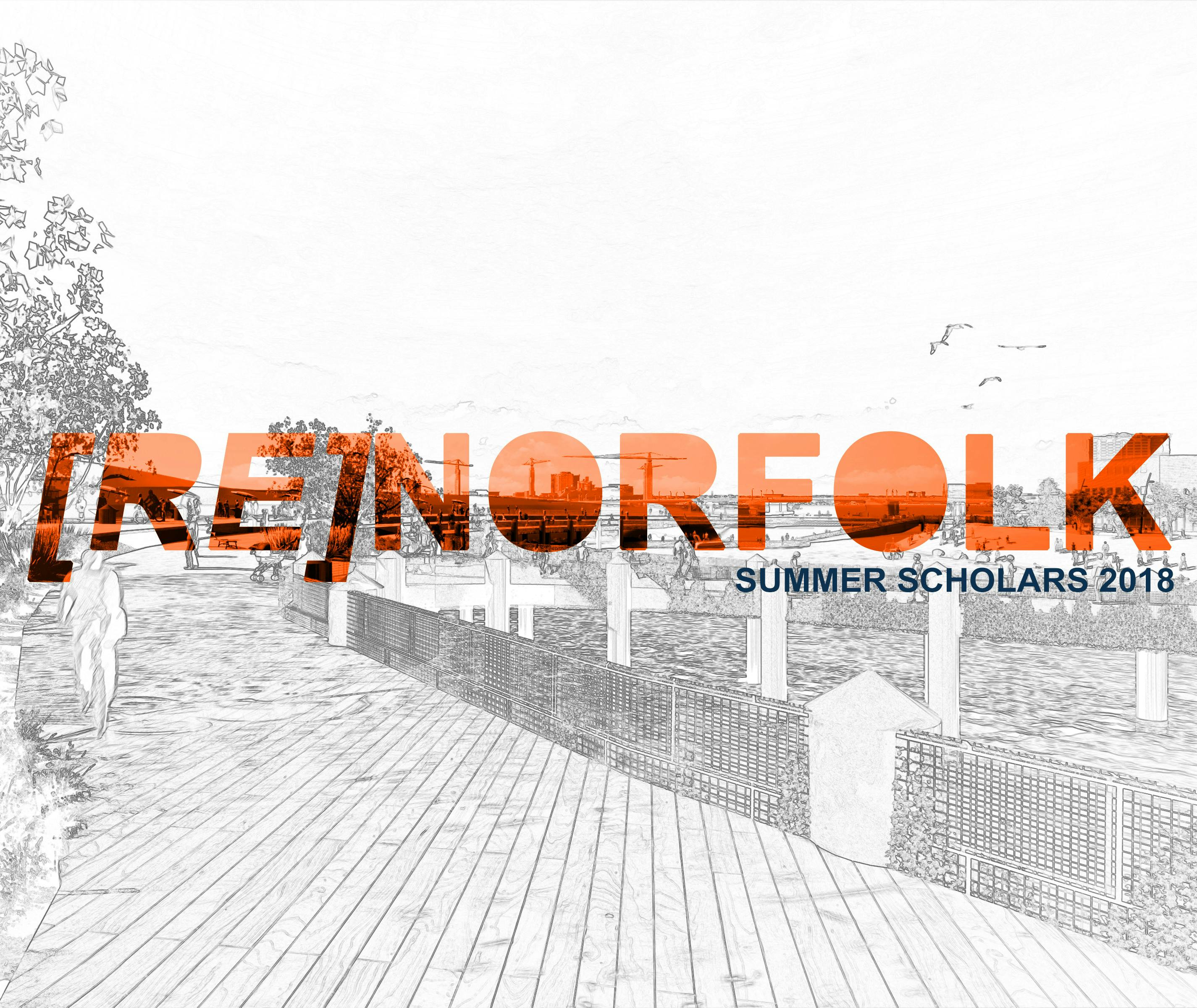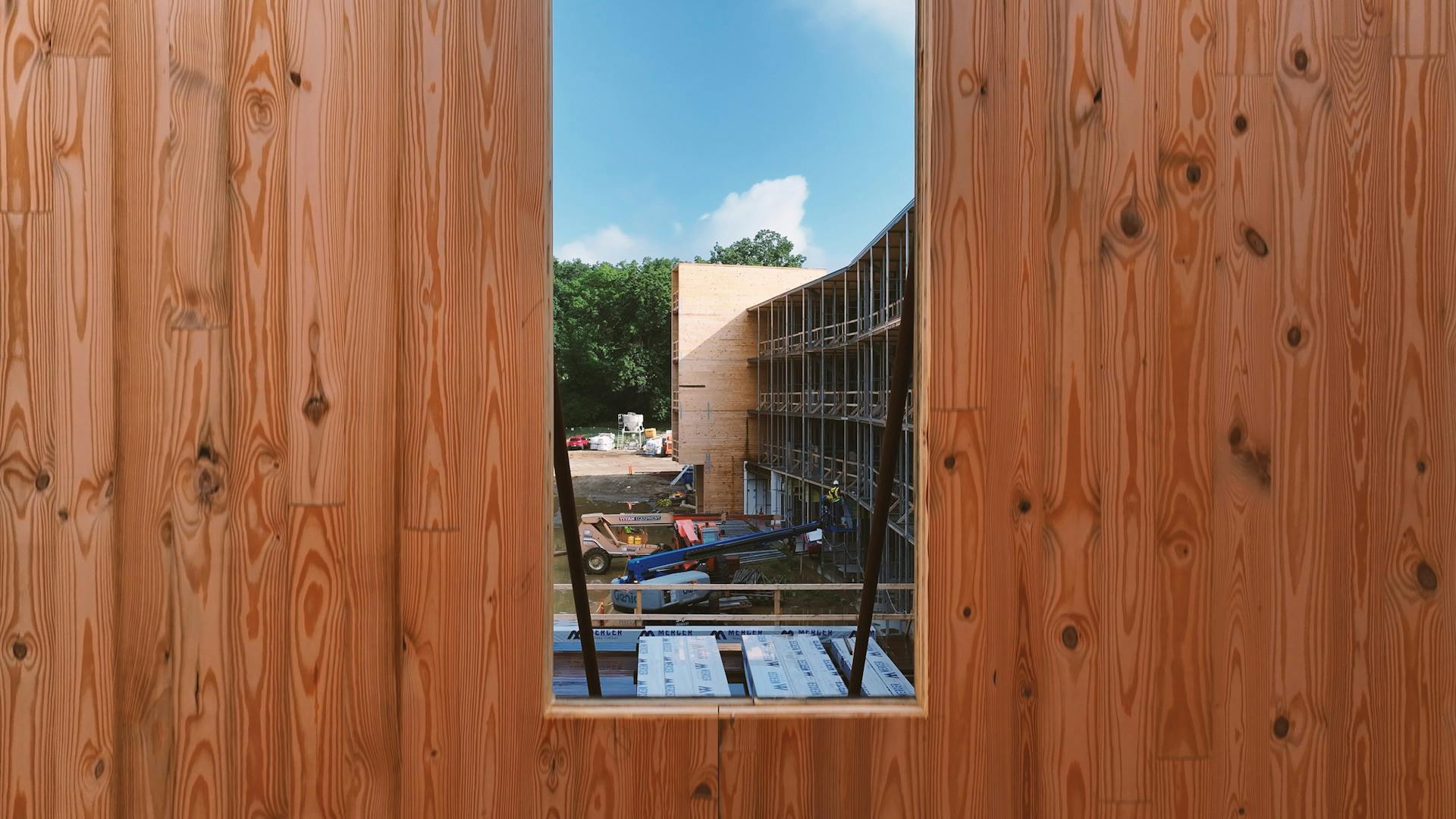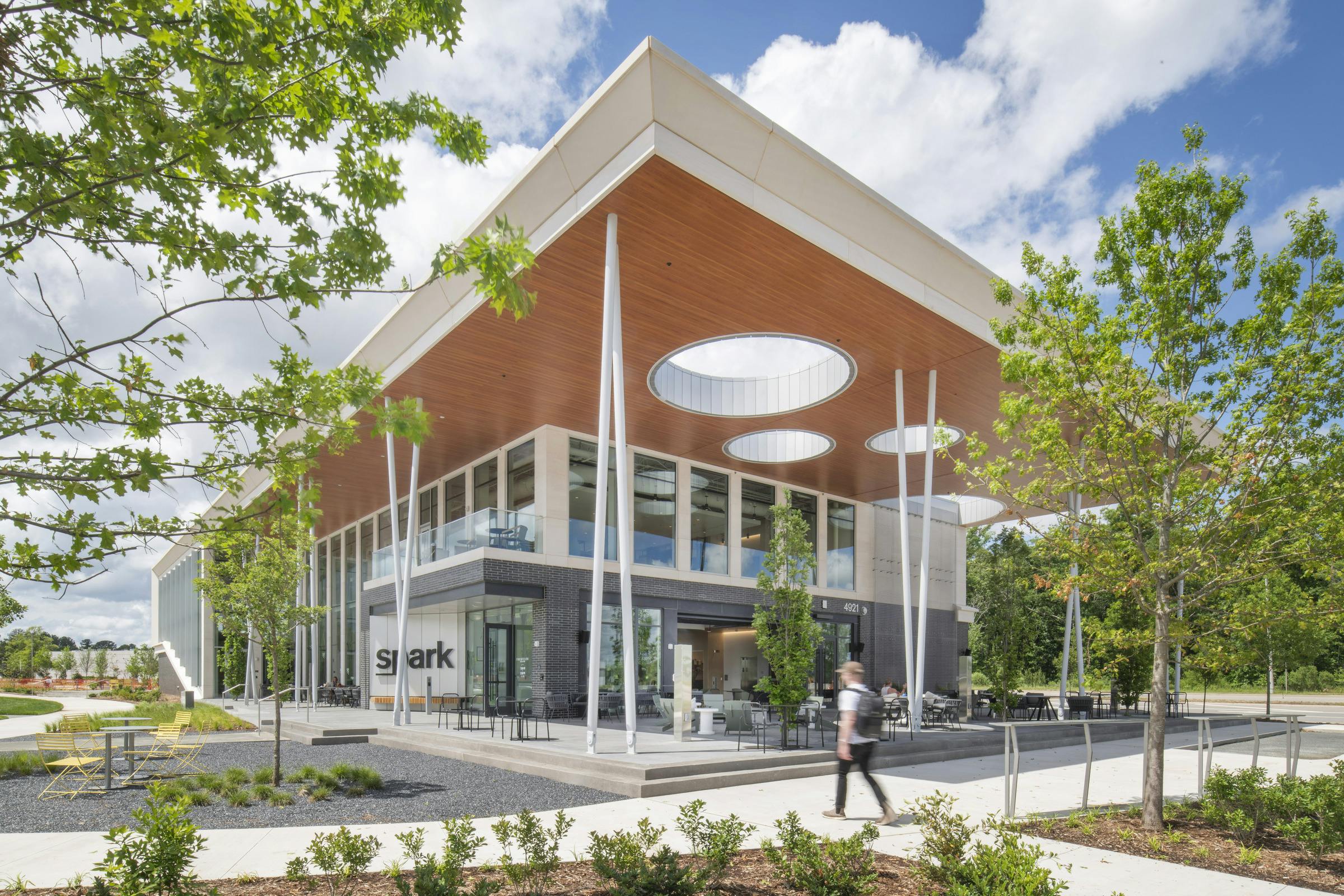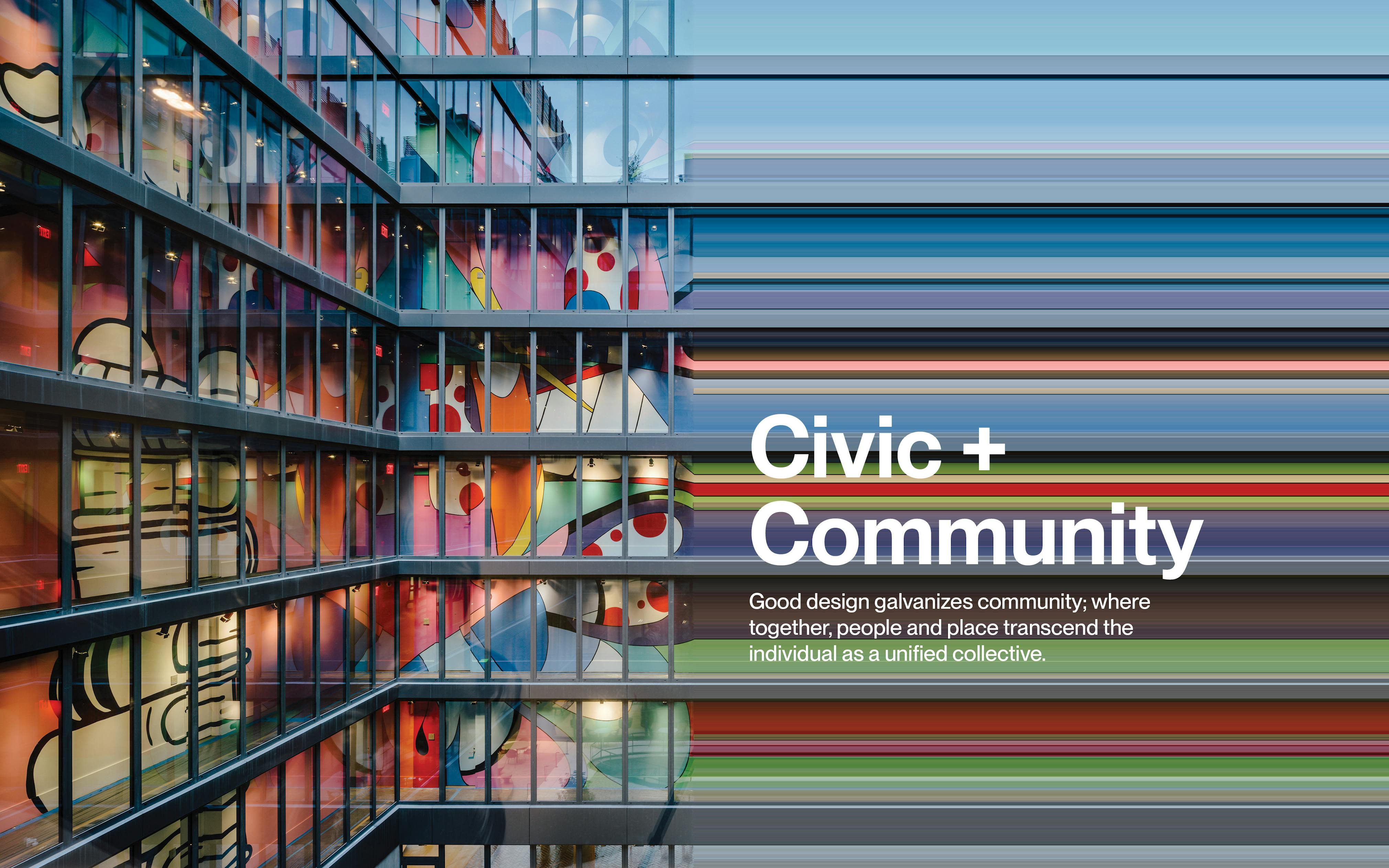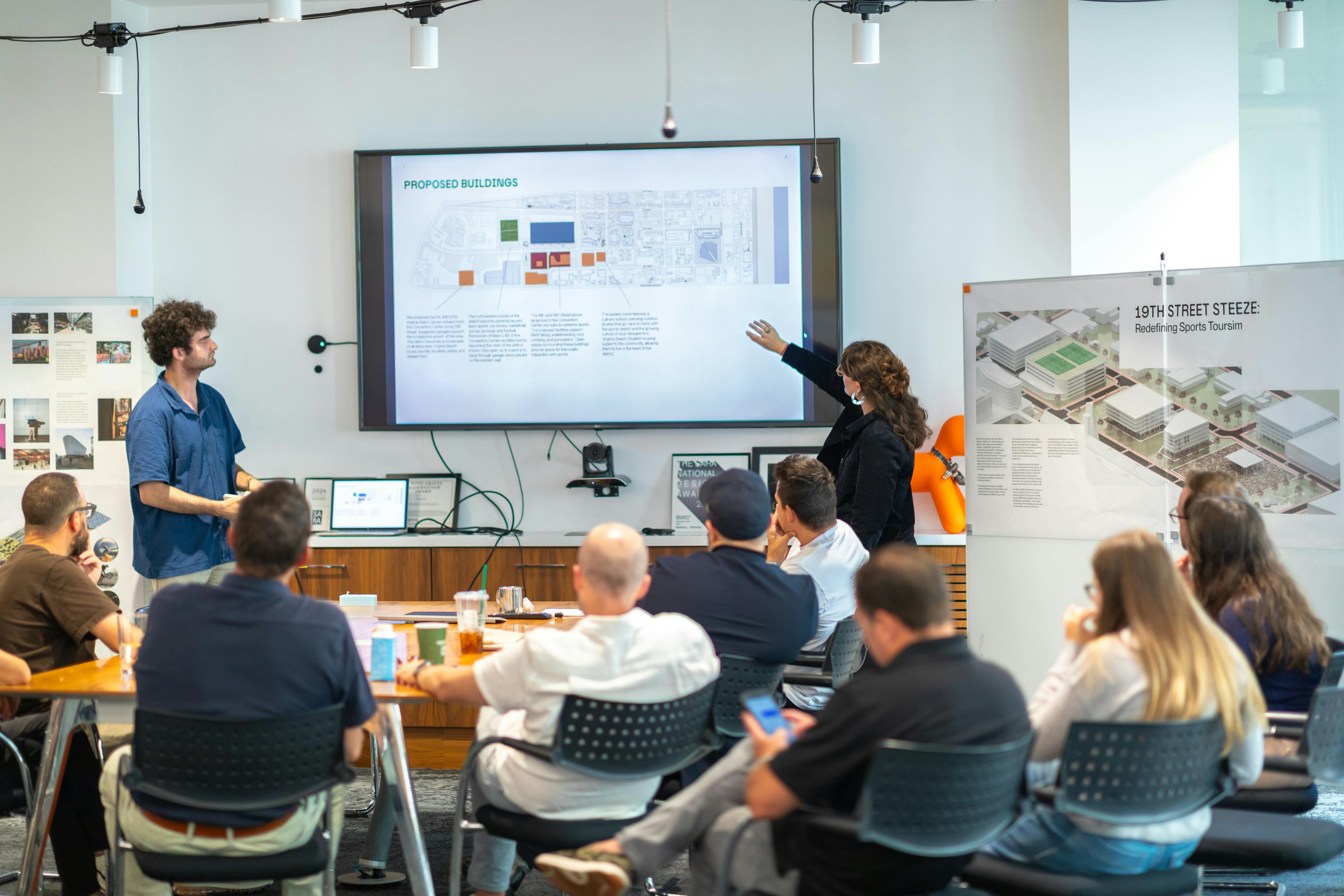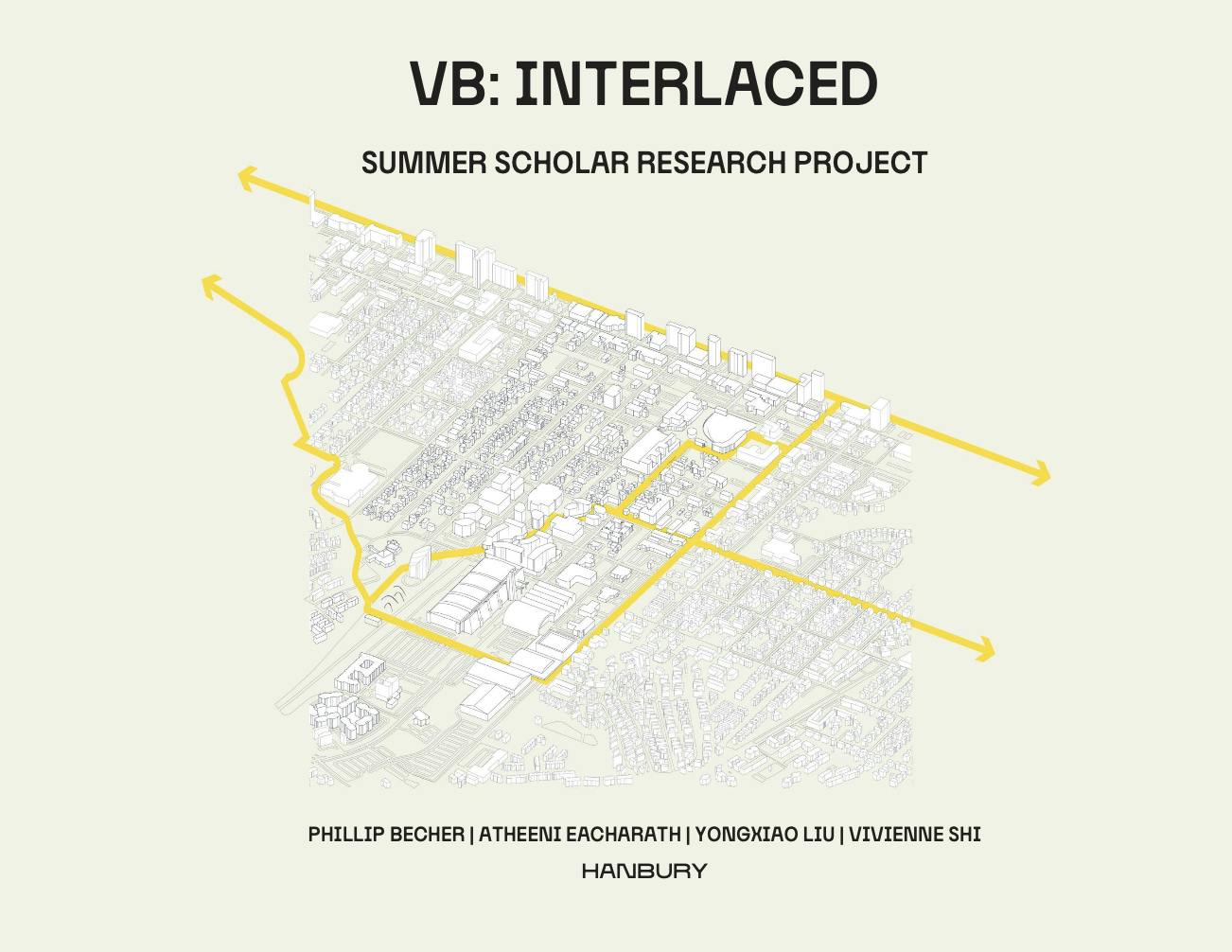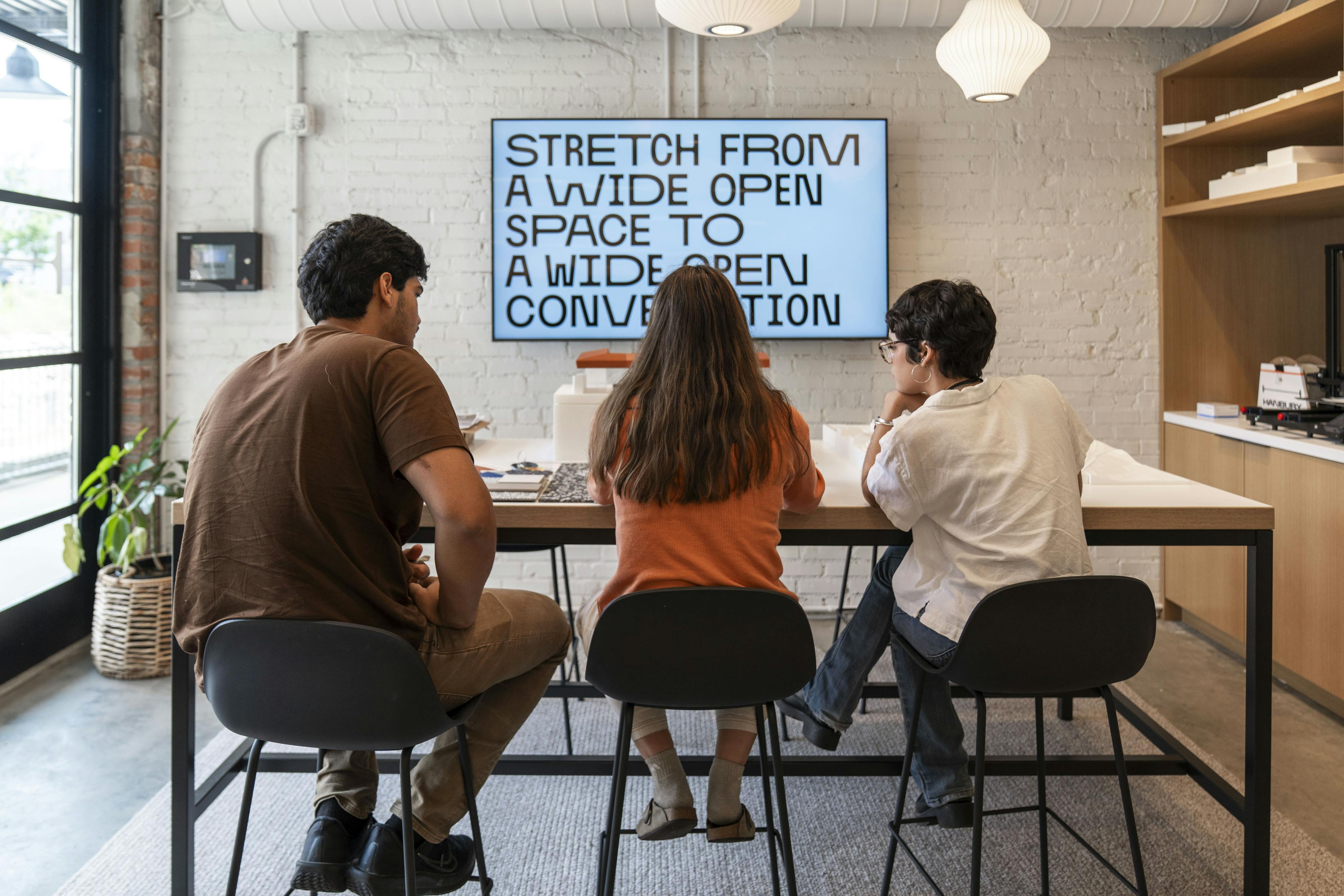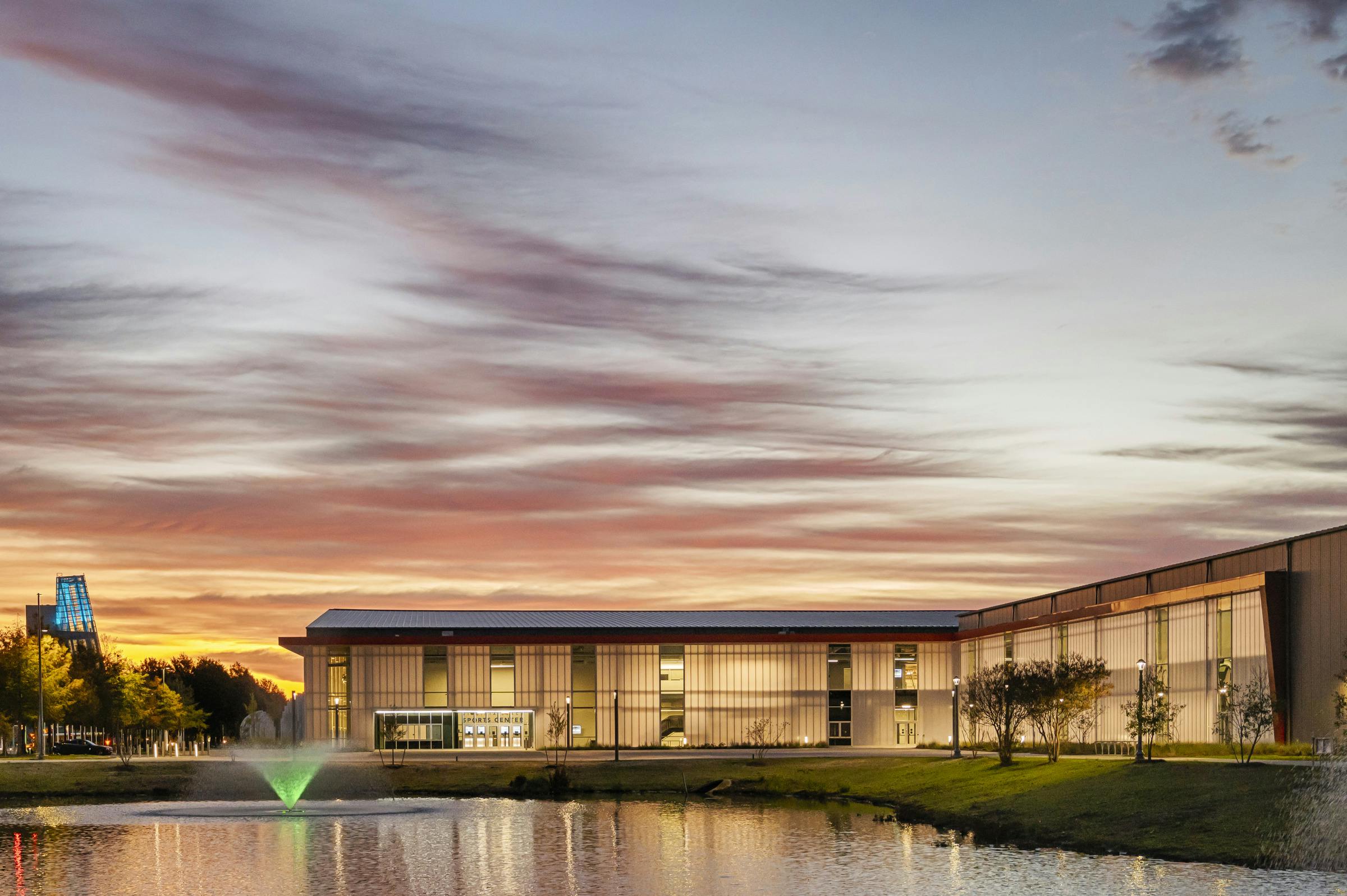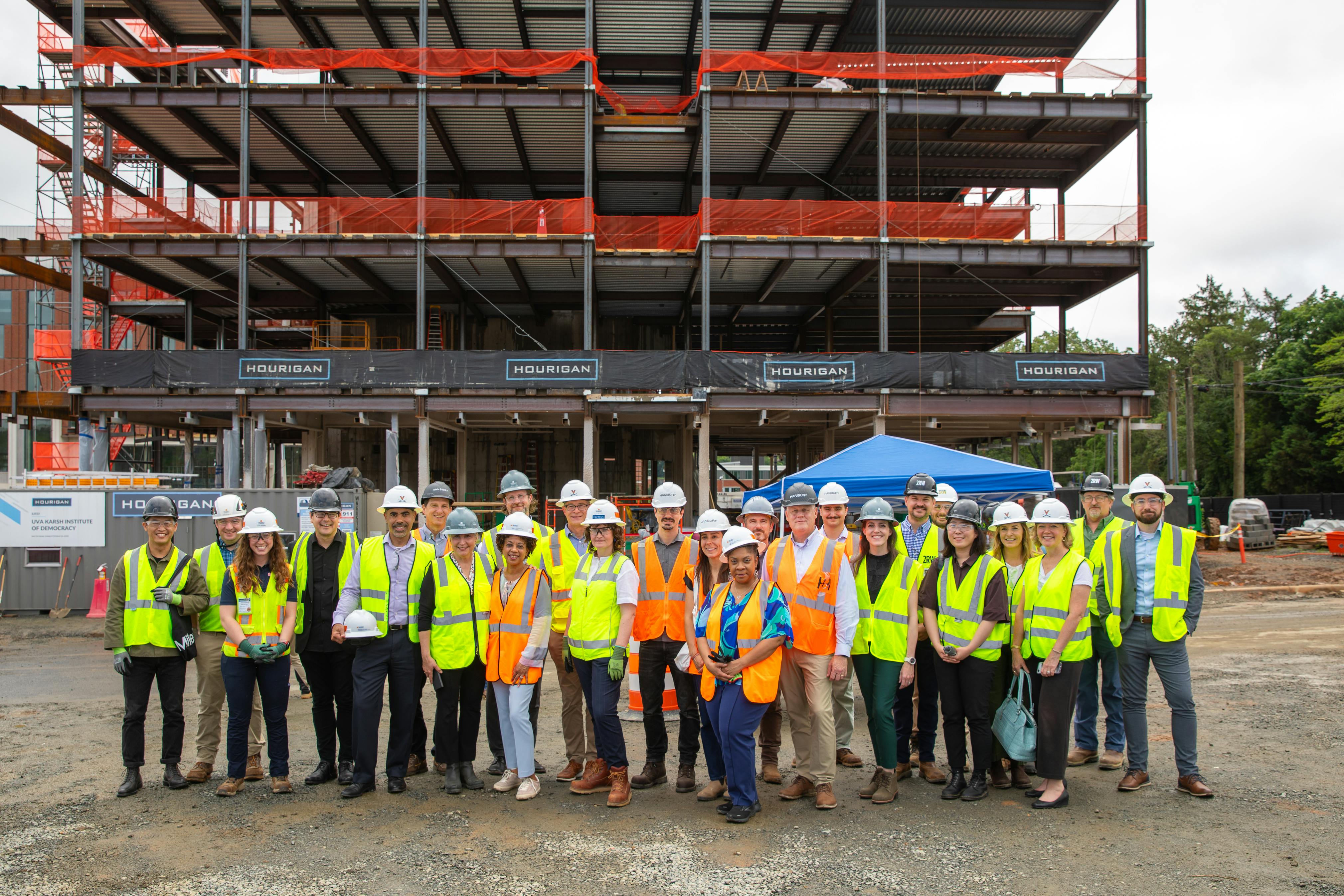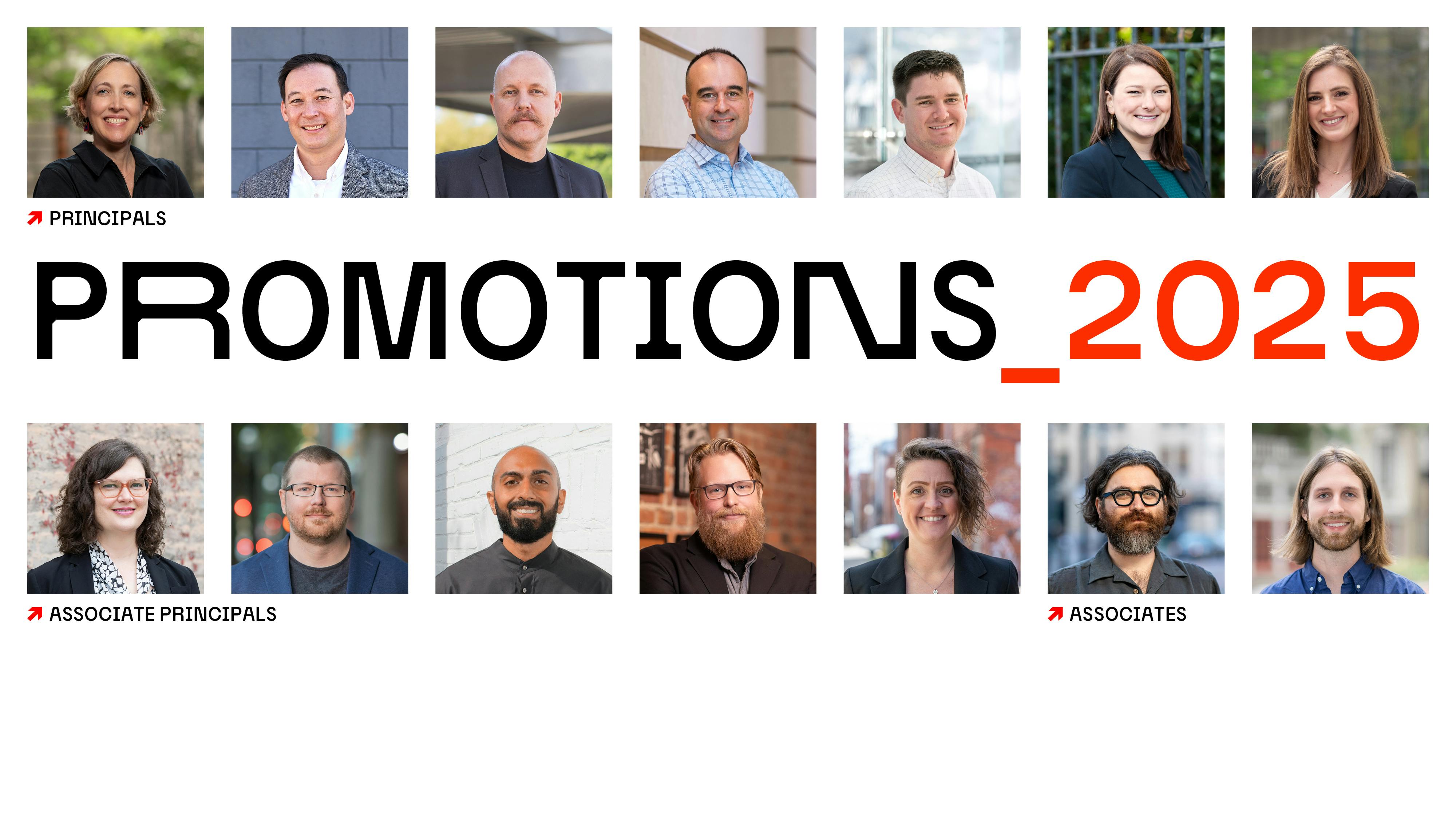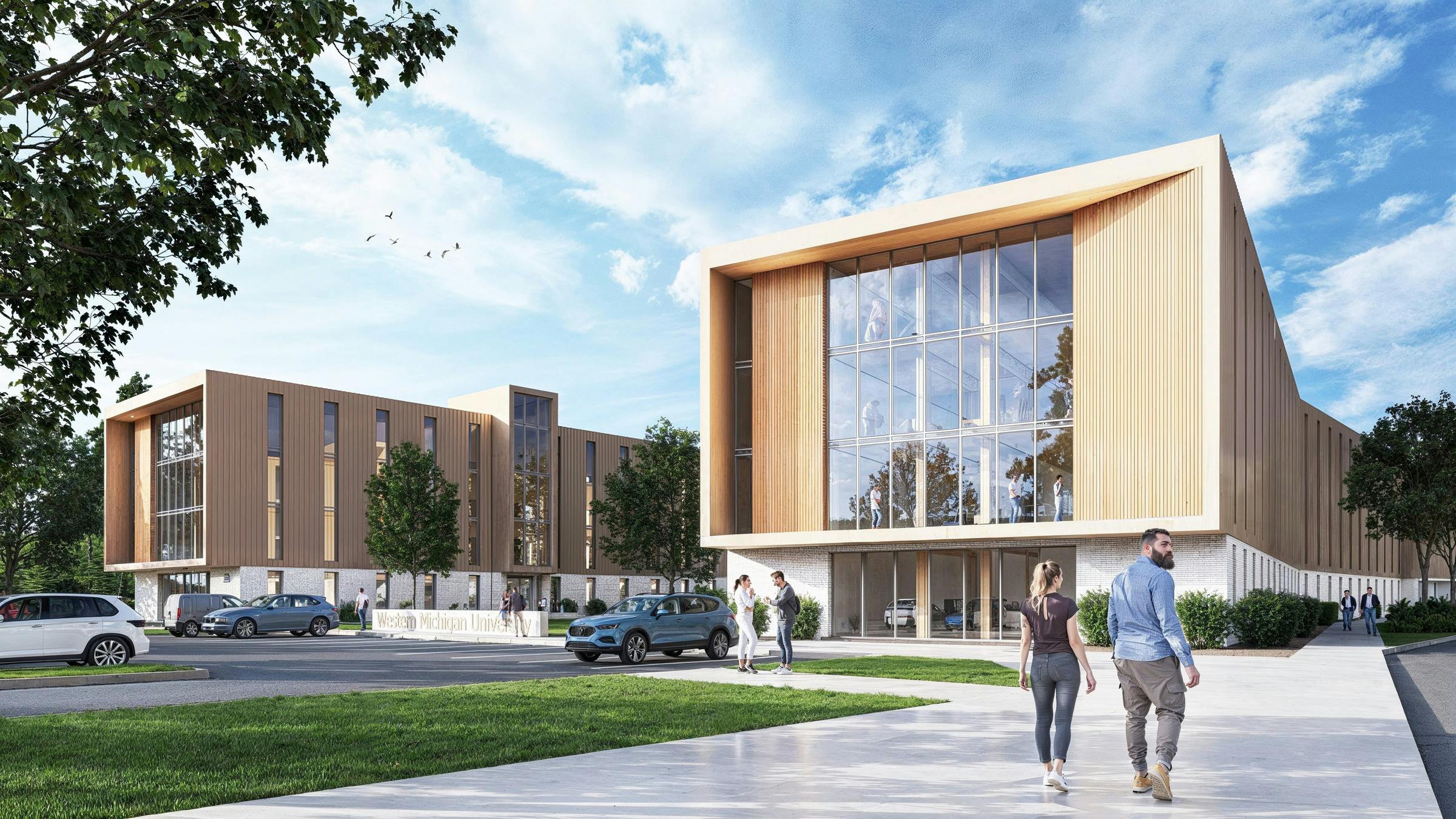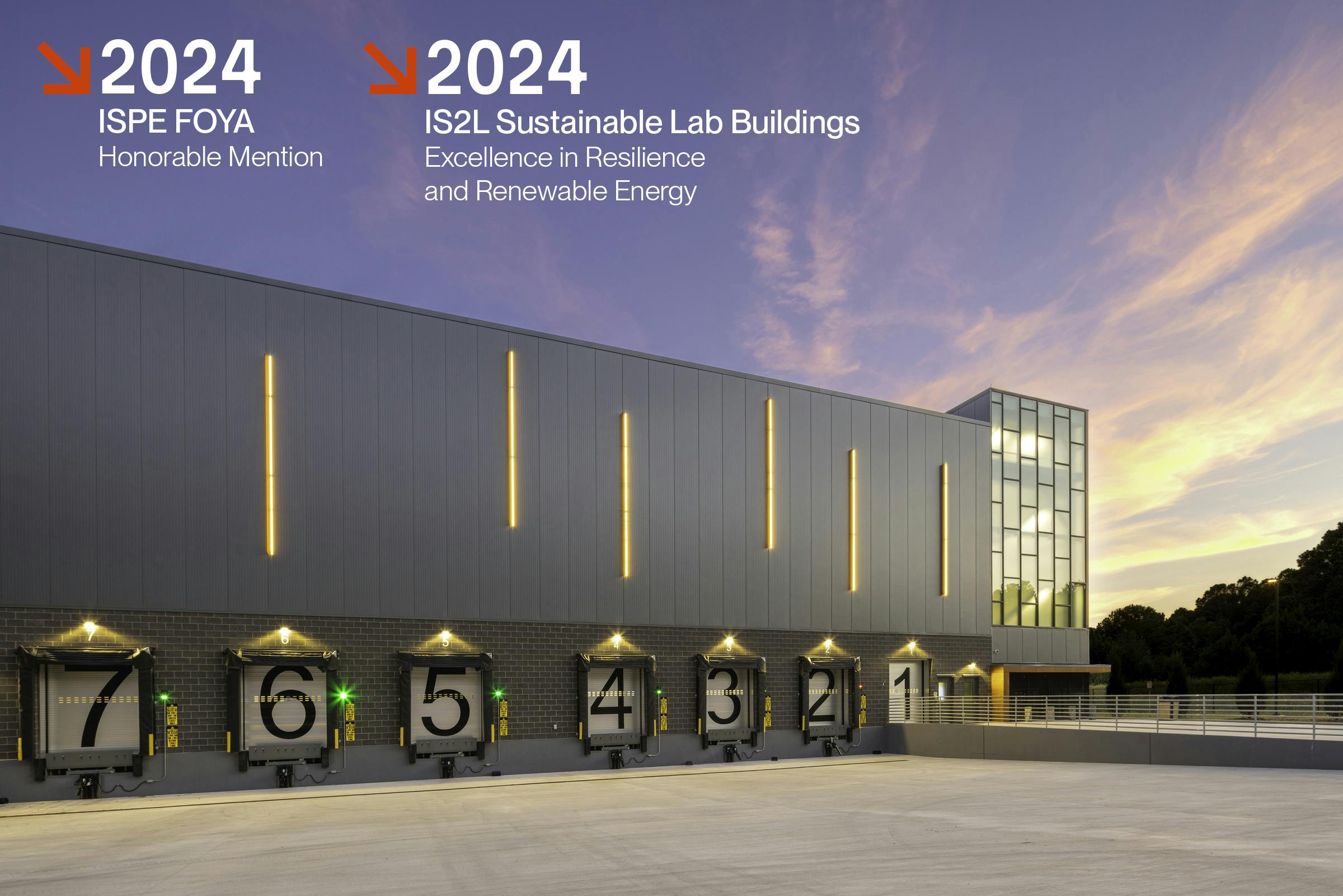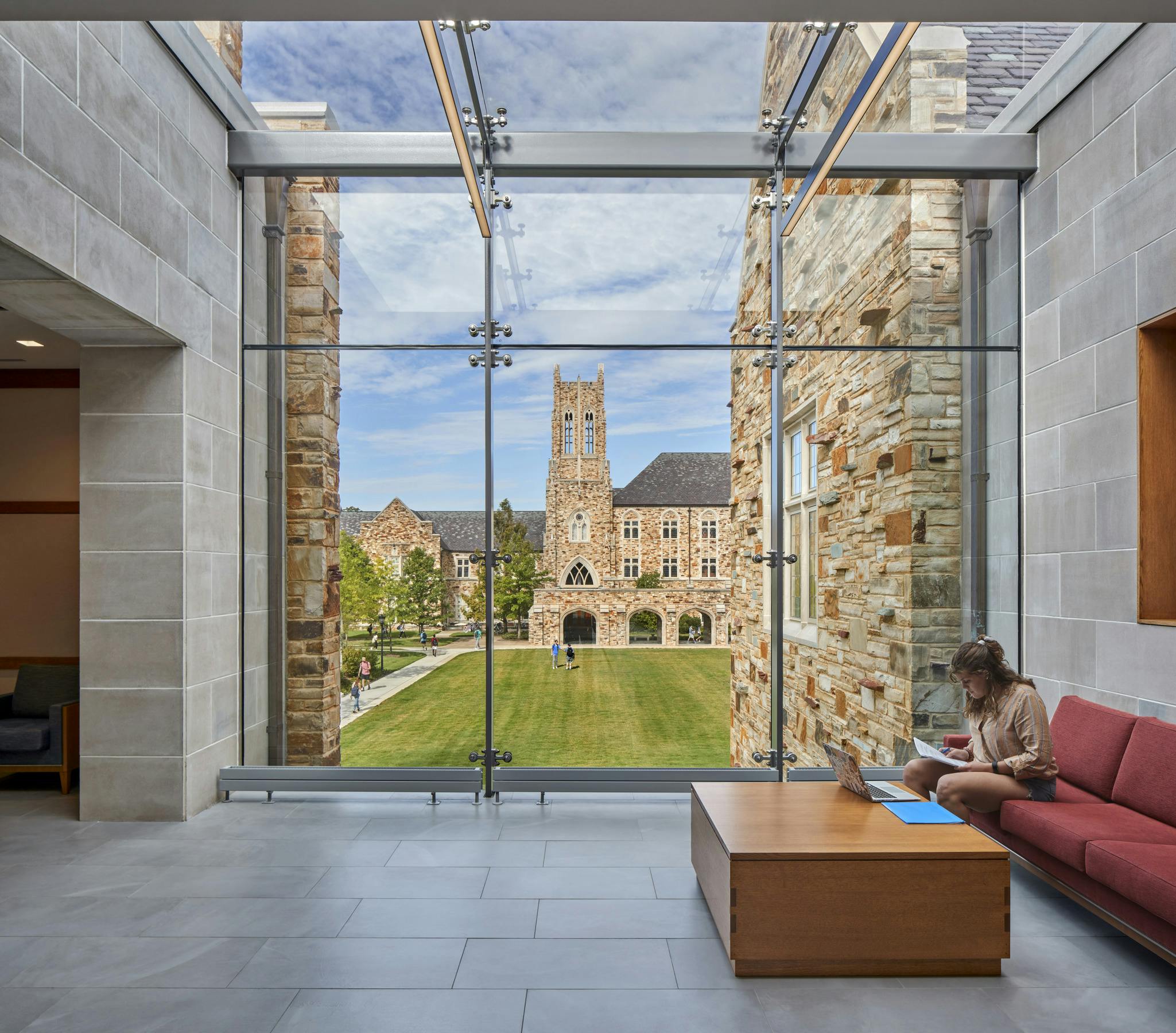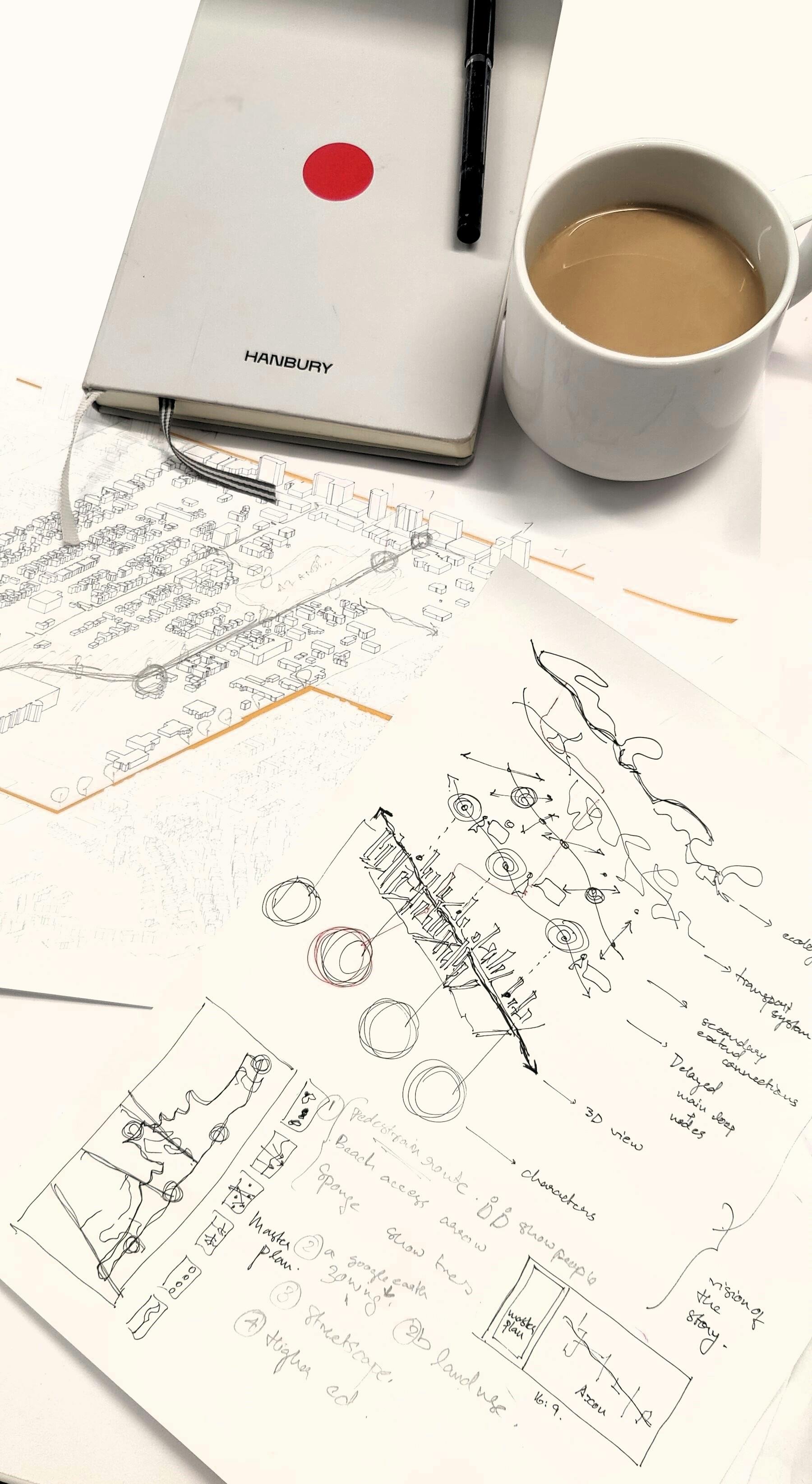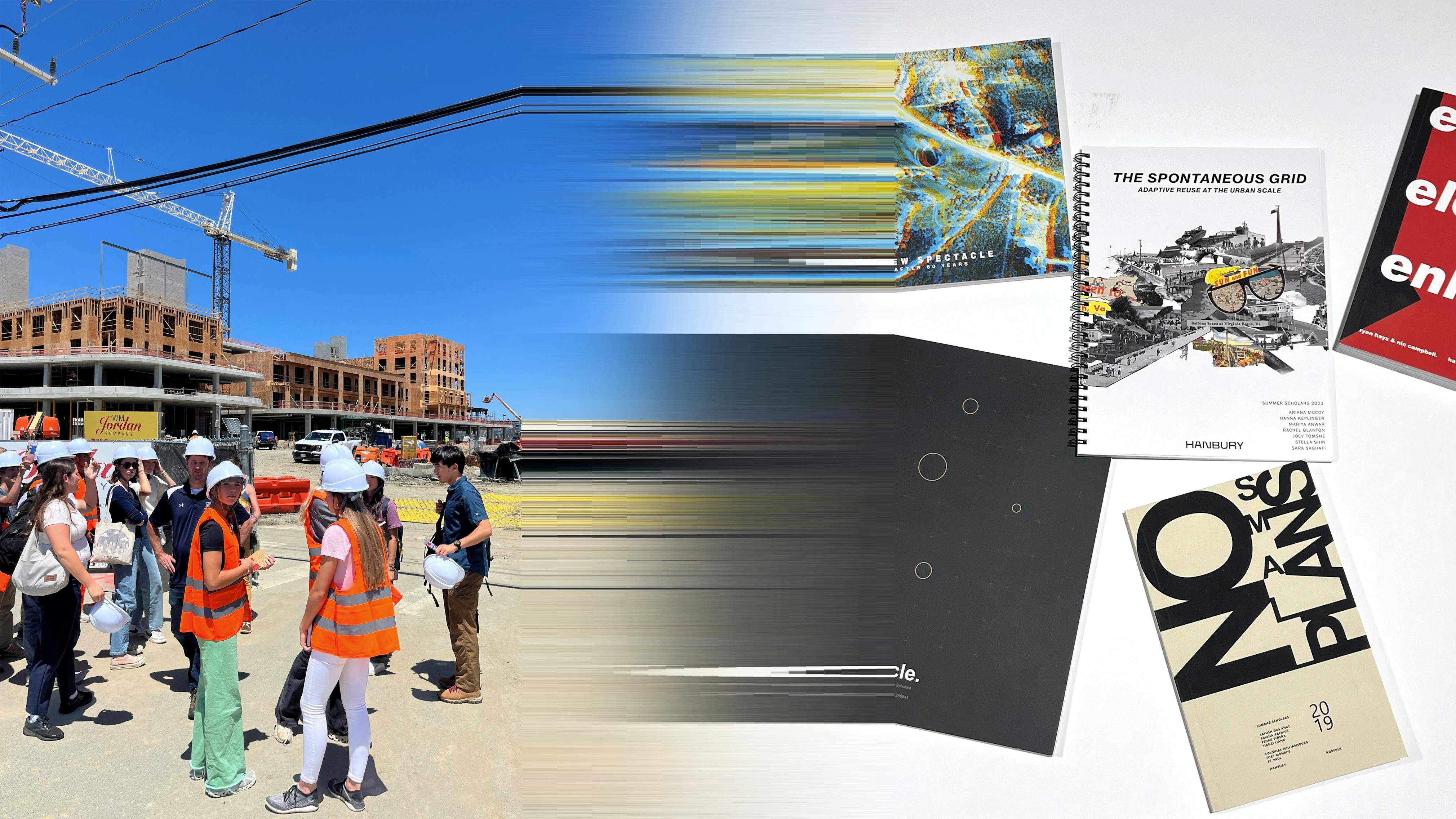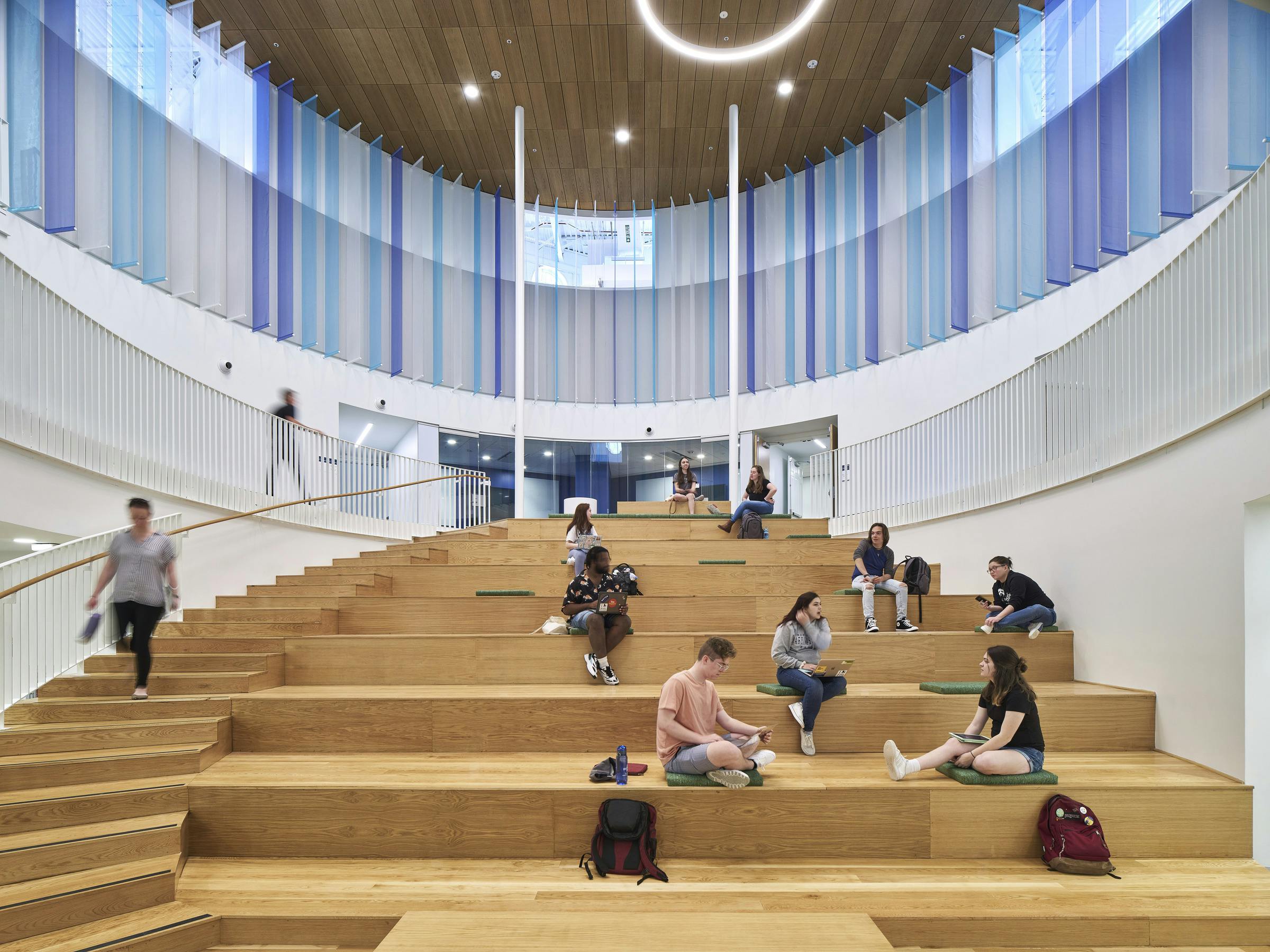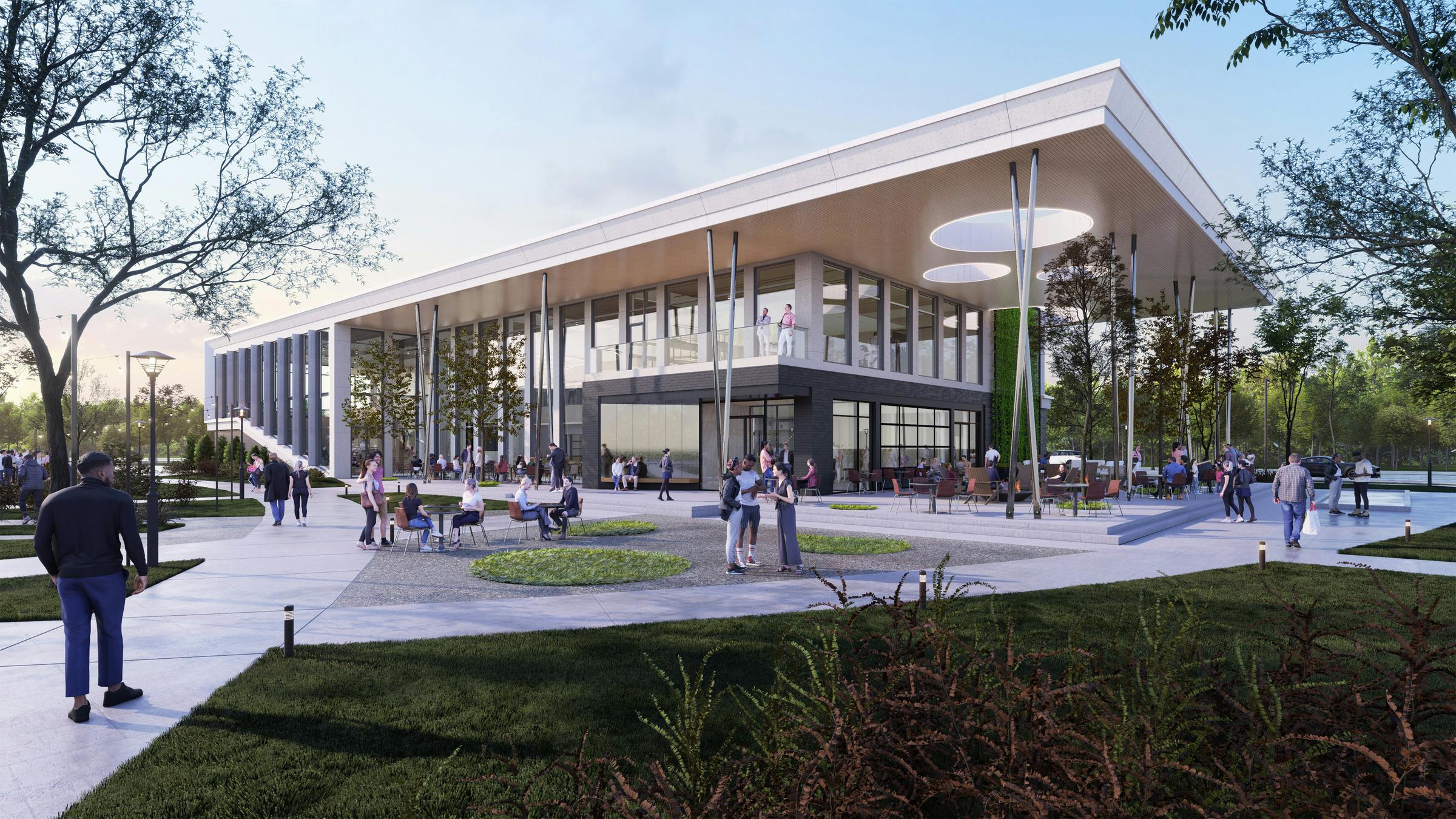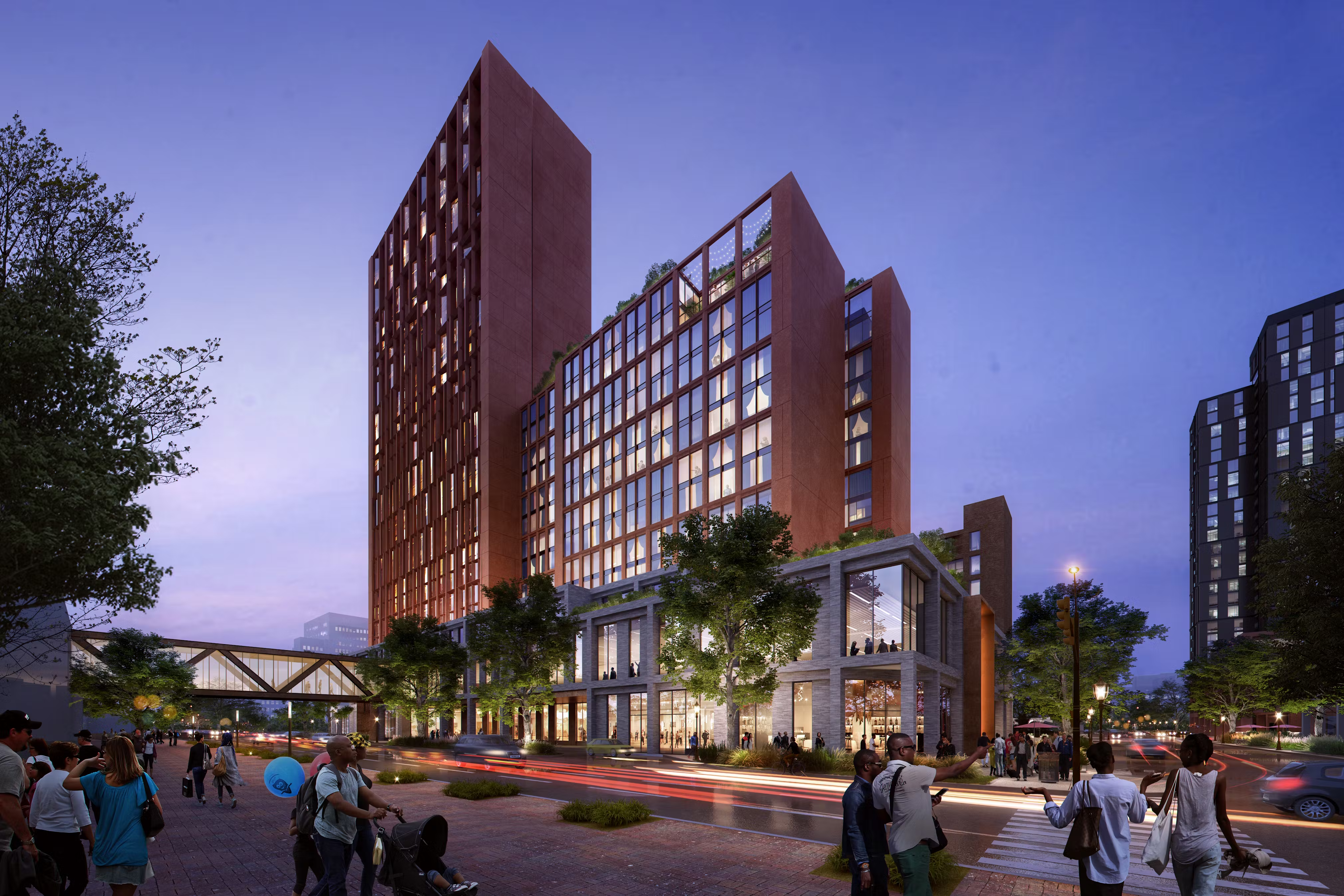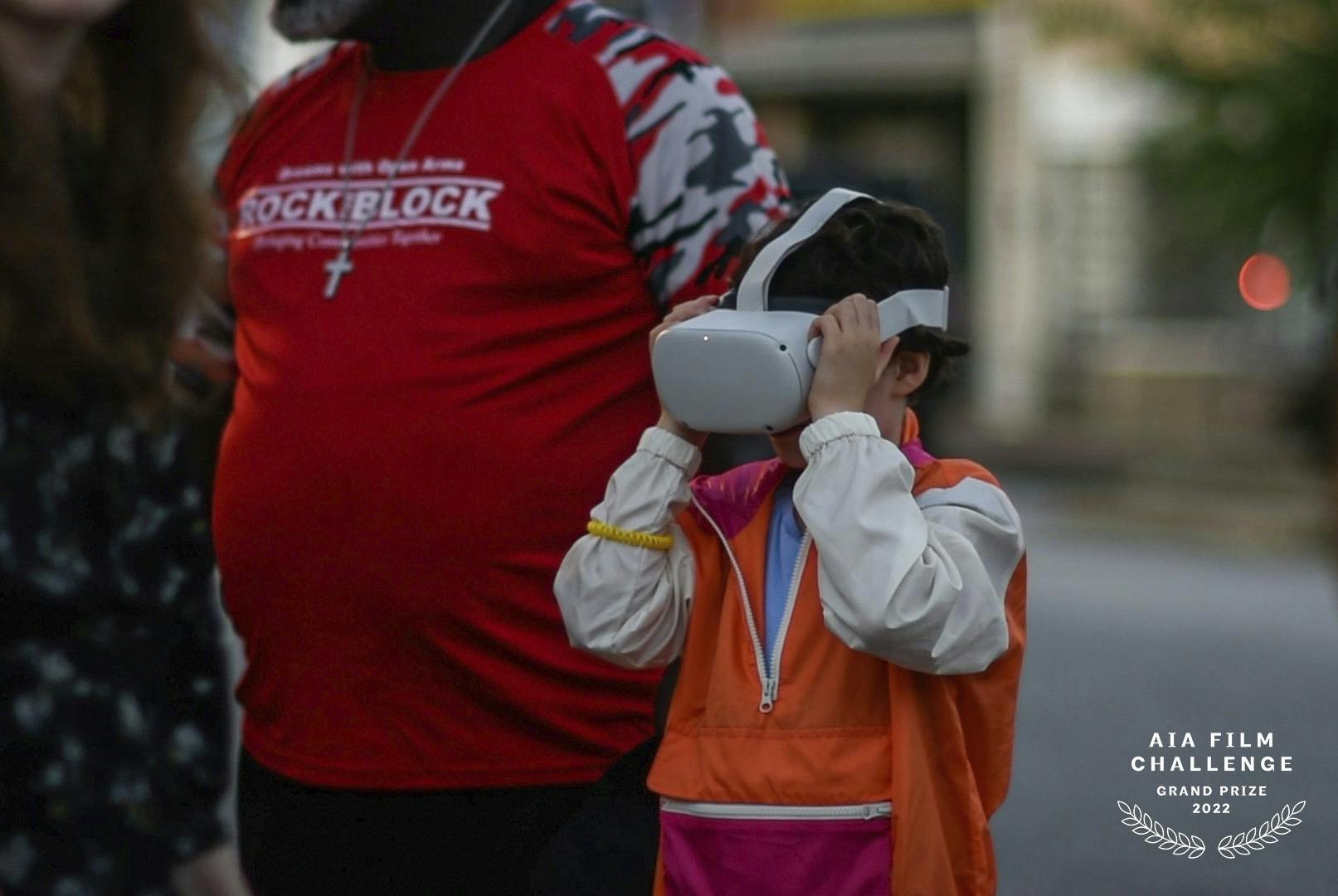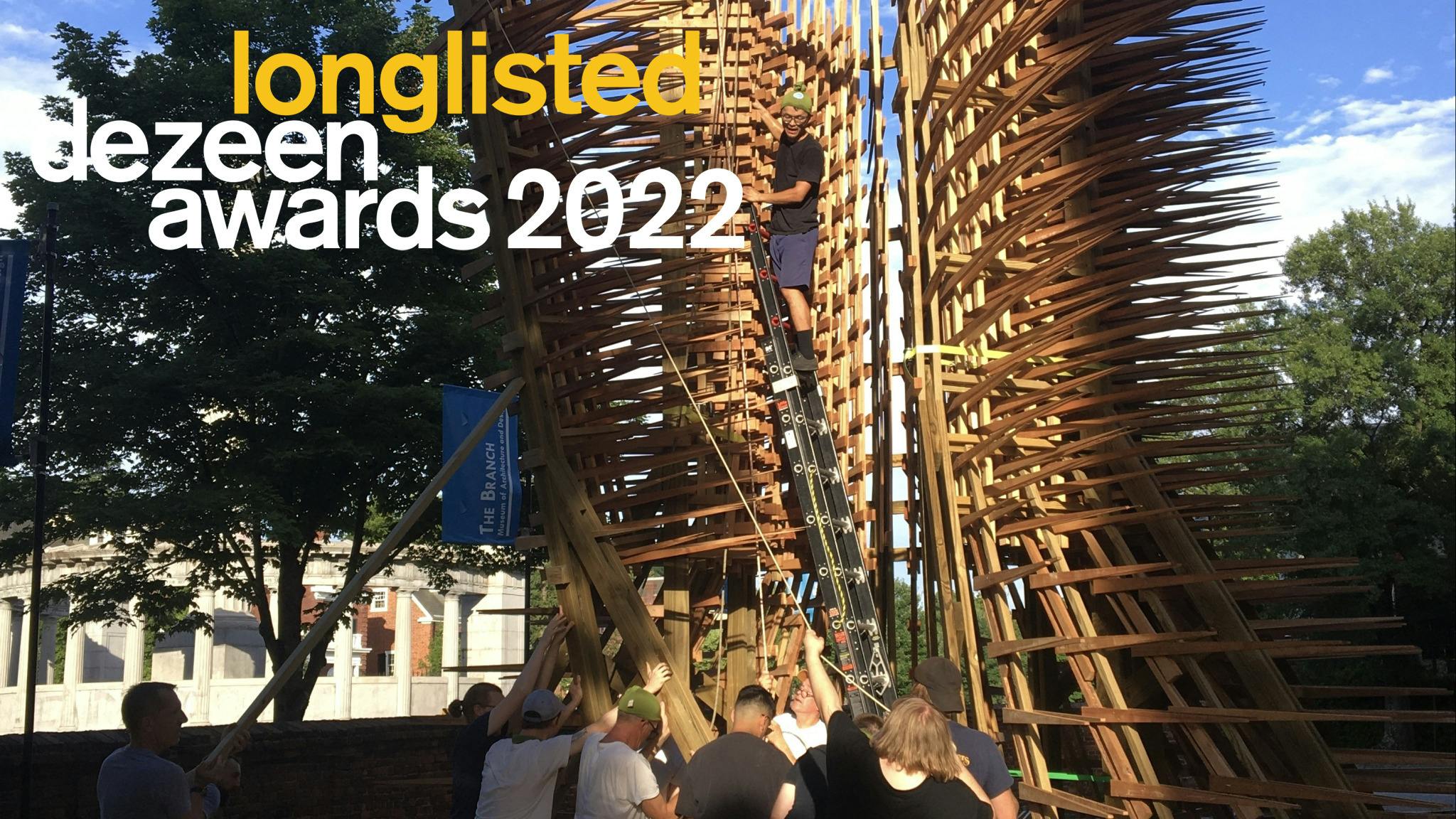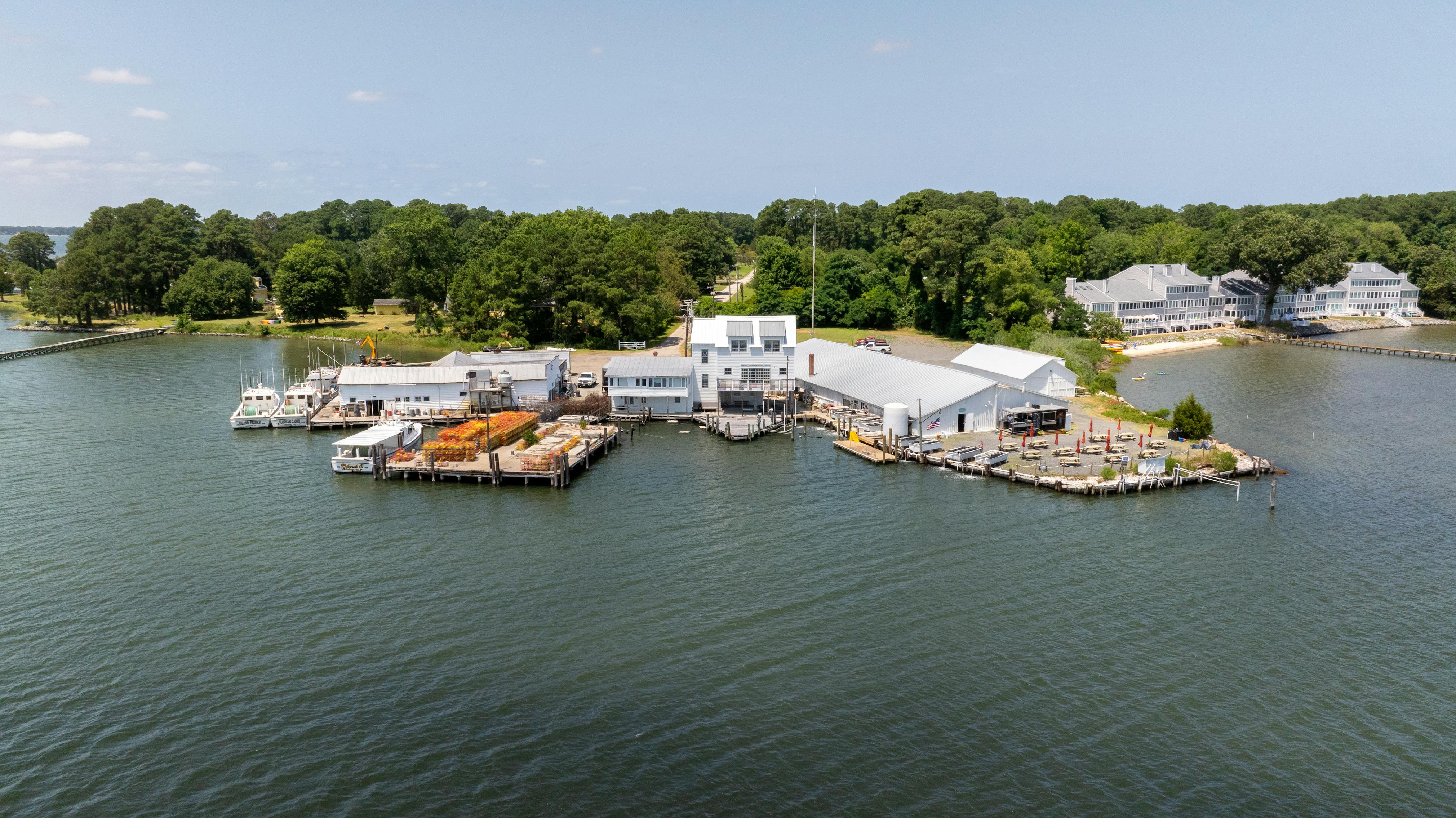

Holistic Approach
Grounded in Research
We believe in harnessing the power of design thinking to champion human potential. By embedding research into our practice, we aim to achieve design outcomes that resonate with this vision. The elevation of Ashley Montgomery to Director of Research and Design Strategy, coupled with welcoming Emily Gaines as our Data Analyst, reinforces this commitment to a holistic project approach. Their collective expertise will be instrumental in strengthening the foundation of research at Hanbury.
Design research extends beyond the traditional approach to creating the built environment. It seeks to collect evidence and explore unconventional approaches outside established norms to create a knowledge foundation that enhances design outcomes. At Hanbury, our research efforts are centralized around four key pillars:
Collaboration: We actively engage in research through partnerships with industry peers, academia, non-profit organizations, and community leaders, allowing us to explore the wide-reaching impacts of our designs and processes.
Fields of Inquiry: Innovation begins with inquiry. “What if?” “How can we?” Our research methodology encourages curiosity and exploration, providing space to question, rethink, and propose new paradigms in our design process.
Forward Thinking: Our areas of study intentionally transcend boundaries, promoting knowledge dissemination across all market sectors and facilitating the cross-pollination of ideas and expertise throughout the firm.
Data Informed: Leveraging data from past projects guides our future decisions, helping us better understand and respond to the evolving needs of our communities, buildings, and processes.
We classify our research into two primary categories:
Project Research, focusing on practical problem-solving to address immediate, tangible issues, such as enhancing energy efficiency and integrating resilience strategies.
Conceptual and Applied Research, which often emerges as an extension of project research and works to understand the broader societal impacts of our designs. We collaborate with entities beyond architecture to add depth to our perspective.
This dual approach enables us to target research based on current project needs, while also exploring innovative, forward-thinking concepts, ensuring both practicality and theoretical adaptability.
What defines exceptional design at Hanbury? It's the collective impact we make on wellness, community, design culture, and the environment. These ‘areas of impact’ emerged from our firm’s collective introspection on what we believe contributes to design excellence. These areas serve as guiding principles, ensuring that every project resonates with the firm's core values, and informing how we integrate research into our projects and practice. We utilize a holistic approach and strive to address these concepts in a comprehensive way.
We believe that informed design is impactful design. The synergy between our R&D team and designers ensures the alignment of our research with the specific client needs as well as broader themes influencing future work. By understanding the unique challenges and opportunities inherent to each project team, client, and community, we maximize the scope and impact of our research. It is this nuanced understanding that strengthens human-to-human connections, linking final outcomes with real-world needs.




